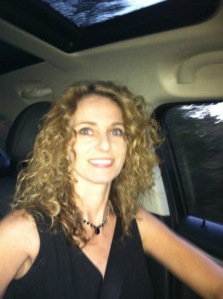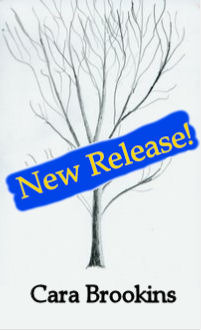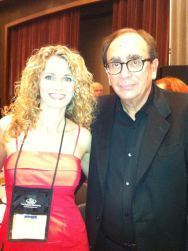Cara Brookins's Blog, page 14
July 27, 2012
Time Travel With Buzz Books!
I am excited to announce that my young adult time-travel series has found a publishing home with Buzz Books. Look for the first in the series in 2013! In addition to a great group of editors, Buzz Books has signed a number of talented authors. I’m proud to be part of the group, and I hope you’ll take the time to check out their new releases.
What if you were thrust back in ancient time but it was nothing like the history books describe? When fifteen year old Jordan Booker’s parents die in an accident, he and his little sister are sent to live with their aunt in the middle of nowhere. He thinks his bizarre aunt and the broken down house are the craziest things that will ever happen to him. Then a time capsule sends him back to a world that looks more like an alien planet than an earth of long ago.
Jordan must survive in a foreign landscape of stinging trees, multi-eyed birds, miniature dinosaurs, and hostile natives. Despite the time traveling agent working to stop him, he must find special artifacts to save the future earth.

July 19, 2012
Sing the Song of My Town
How real should a fiction location be, and how do you research it? Every fiction writer must decide where the story happens in time and space. If the location is real/realistic, then the details have to feel authentic. If you stretch reality too far, the readers will not only abandon you, they will attack you with scathing reviews and emails.
In my latest book, I faced the task of creating a realistic town in the Appalachian mountains of Kentucky. Google maps and YouTube do a great job of showing the setting, but they don’t tell the whole story. Even though perfectly respectable writers have managed authentic tales without visiting the setting of their novel, I’m a firm believer in visiting whenever possible. Every spot on the globe has its own unique feel. But more importantly, it has its own song.
People interact with unique words, gestures, and a rhythm that is difficult to find on YouTube. Capture that in your novel, and the readers will be lost in your dream world. I found that the people of Kentucky tend to be shy about talking to writers, and thriller writers are especially low on their list of favorite people. In any location, be respectful and gentle. You aren’t obligated to reveal that you’re a writer. You can be a curious individual learning about a new location. I recommend finding a group of artists who are native to the area. Listen to them talk, watch the way they move and interact, tap your foot to the beat of their song until you learn to hum along beside them.
Then go back to your favorite writing spot, and SING!

Berea Kentucky

July 18, 2012
ThrillerFest VII New York
Thrilling? Absolutely. We took too little time for sleeping or eating and just the right amount for writer chats and cocktails. It will take me a while to recover. To every writer who has asked me about it, I’ve had one word. “Go.”
Interacting with people who work and think like you do is always valuable and motivational. Make these people the top writers in the world and the benefit increases exponentially.
CraftFest offers instructions and motivation from the best in the business. I came away with the tools to polish my manuscripts to a higher level of professionalism. AgentFest puts you in touch with the agents and publishing houses that you can’t get to on your own. Pitch your story, and land an agent or sell outright to an editor. And finally, ThrillerFest is two days of the top authors describing their methods, downfalls, and successes. The one thing they all agreed on? They have the best job in the world.
If you’re a serious writer with a completed manuscript, attend the largest conference you can in your genre. There is no substitute for the quality of the knowledge as well as the connections you’ll make.
Certainly I made a pile of business connections, but one of the best parts of the entire experience is the handful of close friends who wandered New York with me in the wee hours of the morning, got mugged, and slept in airports and seedy hotels on their trip home. These are the people I will lean on for writing support and lend a hand back when they are struggling with the journey.
Check out the list of Debut authors who promoted their books at ThrillerFest! http://thethrillbegins.blogspot.com/
Go.

Steve Berry

Lee Child

July 2, 2012
Little Boy Blu

(Photo by Jada Brookins)
***Little Boy Blu is a completed 100,000-word psychological thriller that is ready to market to agents and editors.
Blu Stacey is the only normal child in a family where a genetic disorder is intentionally selected to build reality television fame. His young Appalachian mom, Layla, selects her pregnancies based on a recessive disorder that turns their skin blue. She hides the children in a remote cabin under primitive conditions until she has enough blue children to secure a reality show. Sixteen-year-old Blu struggles to protect his blue siblings from the world beyond their secluded cabin. He must discover who is trying to kill him after he uncovers family secrets and begins to question his mom’s motives. Even when the evidence undeniably points toward his own mother, he continues to shield and defend her
The television crew introduces the isolated children to social norms and new technology. But when a member of the crew is killed, Blu alone knows that he was the intended target. In order to uncover the killer’s identity, he will have to trust an outsider and abandon his protective instincts for his family.
The genetic condition that results in blue skin, methemoglobinemia, is a real condition passed down through a recessive gene pair and originating in Troublesome Creek Kentucky.

Time Warp
(Photo by Jada Brookins)
Time Warp
I did it. I wrote a full 405 page novel in 40 days. (I did not manage to make any blog posts during that time!) It took more discipline than I could have imagined, and less sleep than I thought was required for survival. Of course the manuscript needs to be cleaned up and edited, but the story has been told. Now I have a long list of things to do for ThrillerFest and the only thing I really want to do is take a nap and reintroduce myself to my friends and family.
Among other challenges during this task, I was constantly plagued by an odd sense of time bending. I would wake up convinced that I needed to cut a pile of material from a scene because it was far too long. But that night when I counted pages I would find it was only five or six pages long. The strange sense came from the fact that I’d been stuck on it for three days after maintaining a writing a pace of ten to fifteen pages a day. The opposite happened as well. I’d feel like I was clipping along too fast and that the reader wasn’t getting enough time in a location or scene, then when I counted pages they had been hanging out there longer than I thought, but the speed typing had me fooled.
You get the idea. Writers have to be careful of the time warp they experience while blazing through a scene or laboring for days. My solution is keeping a “real time” clock running in a separate document. It can be a table of contents type of document, though it may run from scene to scene more than chapter to chapter. I use bullet points instead of numbers because I may move things around. And I list the page number only every five scenes or so because it is merely a reference and will change as edits are applied in future drafts. The goal is to keep track of how long scenes are lasting for the reader, regardless of how long they take for me to set them straight on paper.
It is an informal process and goes something like this:
—Jim and Bridgett travel west (pgs 1-7)
—Bridgett receives call about her cousin’s death
—Bridgett drives sleepy, near miss
—Jim takes over in Colorado. Bear. Accident (pgs 16-20)
—Shelter for the night in the pines
To give myself further visual reference over this multi-page or column document, I highlight different types of important scenes in different colors. For example, emotionally charged scenes may be colored in blue, danger scenes in pink, etc. In this way, I can tell at a glance which way the charges of my scenes are swinging and how often. This highlighting often leads to scenes being moved around to keep the reader engaged in a consistent flow of information and emotion.
If you experience similar distortions of time and have other ways to keep things straight, I’d love to hear what works for you!

May 11, 2012
Will You Throw Your Hat In?
Writer’s conferences. What do you think about them? When I began writing, I had never known another writer and didn’t see any particular reason I needed to. Writing was something I did all by myself in a quiet room, not a communal effort that needed a meeting of any sort.
Well, yeah, I was wrong! The first time I entered a room filled with writers I was certain that I was wasting my time, and certain I had nothing in common with them. We all wrote about different topics, after all. Within minutes I knew that I was among my people. That eclectic (and eccentric) group of geeks was exactly like me in too many ways to count. They didn’t mind discussing “where to hide the body” over lunch, and they knew some incredible details about poison, the moon, cowboys, edible insects, and a billion other topics. Seriously, delicious fun!
This past weekend I drove over to Oklahoma City to attend the Oklahoma Writers’ Federation, Inc. (OWFI) conference. It was a top-notch conference with talented speakers, reputable agents and publishers, and piles of really awesome writers. In addition to making new friends and suffering from sleep deprivation, I am more motivated than ever to write and write well.
Steven James, who has published over thirty books, was one of the keynote speakers who inspired me. He reinforced one of my life mottos. “Do everything all the way.” Which I usually express by saying, “Go all in” or “Wear the tee-shirt”. He didn’t use gambling or clothing references though, because he is way cooler than me. He told a story about Irishmen running up against a wall too tall for them to climb over. Then they would throw their hat over the wall and climb over to get it. They had to have something at stake to give it their true best. So today I’m throwing my hat over the wall and then scurrying over to get it.
Of course I’m talking about my thriller manuscript. I signed up to go to ThrillerFest in New York this summer. I also signed up to pitch a completed novel to the agents at AgentFest while I’m there. The commitment of time and money for the conference is my hat. The wall? Obviously, I still have to write the novel. At 60 pages in, I need to average 10 pages a day.
It will be a killer pace, but I’m up for the challenge. If you see me out in public, all pasty white and finger-cramped, tell me to crawl back to my library and write. I have no intention of losing my hat on this adventure.
Cara

May 3, 2012
Cowardly Writer Turns Tiger

GoingTiger
I had the irreverent thought last week that I should start an anonymous blog that told the whole truth about being a writer. I thought I would make it snappy with wit and tiny things we all try to pretend aren’t true. Then I decided it was ridiculous that I couldn’t do this naturally in my current blog with my name at the top. What a coward!
So here goes….
Writing is difficult. Sometimes I want to give up. It steals away my family time, my sleep, and my social life with little promise of success. I used to whine like that to my best friend (a talented writer) whenever a plot was holding me hostage and making me feel small and weak. I lost my friend this year to cancer, but I still hear his voice.
“Yeah, so quit then. Go ahead. Just stop writing.”
And then we would both have a laugh, because of course I can’t quit. I don’t have any choice at all. I have these words, these stories, and I have to see where they are going, how will they end, how can I bring it all together? What will happen when this person meets that situation? When I’m midway through the writing, I have another idea, and then another. I don’t have any choice at all.
Writers write.
You may have guessed the thriller had me whimpering in pain for about a week. Then I found a half day to kick back in the hammock with an extension cord and a laptop. Honestly, I growled a little. Then I muscled up and clawed that bad boy into shape. I found a voice and I hope I’ve made a difficult character sympathetic after all. I’m forty pages in and wagging my tail about being a writer.

April 12, 2012
Writing Behind the Wheel

Writing in the Mini Cooper
This week I’m battling myself as I begin the thriller novel and polishing the previous manuscript. One event is closely related to the other. In both stages I am evaluating why I choose to write a particular book and weighing the value of the investment.
Even though I know it will only be a short delay, I’m avoiding the final edits on my voodoo comedy manuscript in lieu of thriller research. Things left undone are distracting. And a novel written without your full focus is not your best work. Of course this avoidance is in part because the thriller is new and a good deal more exciting than editing, but in the interest of full disclosure…there is more to it than that.
Finishing a manuscript is risky. I’ve invested a huge block of time and energy into that ream of paper. Calling it complete should be a relief. Instead, because it is an unsold manuscript without an agent, it has the weight of an albatross. Finishing is risking rejection and failure and the possibility that I did it all for naught. What writer hasn’t struggled with this? How do we avoid procrastinating to the point of paralysis because of our insecurity? Honestly, if finishing is so frightening, why would I start another book in the first place? Ever?
The answer is surprisingly simple. Well, simple to write anyhow, not always simple to implement. First, discern why you write. (Because you must, most likely) Because no one can answer that voice but you. Now make certain that last manuscript fits with your answer. Mine does. I wrote that novel a voodoo comedy was in me and needed to come out. I also learned a great deal about writing and about myself while penning it. So I’ve already achieved so much that selling it would be a mere bonus… yeah right… selling it is part of the drive, it is part of the ‘I must’ involved in writing a book. I don’t have a problem admitting that. So now I pledge to complete those edits and send it away.
Week 2 —Research
The onset of the idea and research is a good time to make sure the new book fits into your goals and reasons for writing. If not, it is much easier to drop it at this point than 300 pages from now. The thriller absolutely won’t leave me alone, so I clearly don’t have a choice on this one. But more than that, it is a story that is in line with my personal style of writing and the messages that drive me. It not only something I want to do, I feel confident that I can give the reader a well told story for their dollar. If I don’t feel that way, I must let the muse carry it to a better prepared writer or put it on hold until I develop the proper mindset to write it well.
Last week I outlined the ‘idea’ phase of my novel’s inception. Since then I’ve done enough research to know that the premise of the novel is plausible. The entire plot was conceived around a concept that I had to make certain was medically possible. It is, so I have lined up a couple of interviews with experts in two fields. There is no use in starting without a solid base of fact-based research and real world experience that isn’t covered in Wikipedia.
I’ve also written a half-dozen voice samples—none longer than two pages—to narrow down the point of view character and person. I started with first person and found that I had to invent all sorts of contrived reasons a single person would have all the information needed to tell the story. It took me a few tries to admit that if I had to invent so many scenarios, then it wasn’t a first person story.
All this and I haven’t started writing in earnest yet. Even though I sometimes ache to just jump in, getting things in order before truly beginning is essential. Much of the preliminary ‘writing’ takes place in my head. I turn the radio, podcasts, and audio books off during my commute and think ‘in’ the novel. I’ve planned some great scenes behind the wheel of my car. My head is in the novel when I’m working in the garden, mowing the lawn, walking through the neighborhood. (If you live nearby, this is my explanation/apology for the erratic lawn mowing and walking patterns.) This is the period when my eyes glaze over during lunch with friends and my kids are exhausted by supper conversations interrupted with, “So, do you think it is realistic for a person to die/cry/lie/or be maimed during….”
If the novel doesn’t survive this early phase of full immersion, then it isn’t something you would want to live in your head or at your fingertips for 6-9 months. This is the time that I am quiet and listening to the voices of characters that only I can hear. In a healthy sort of way I mean. A way that all writers understand.
Publishing
Even at this early stage, you should have a plan for publishing the book. If you have a relationship with an agent or editor, approach them with the idea early on. If they aren’t interested, don’t give up on an idea you are passionate about. The publishing world is going through major changes with ePub formats on the brink of outselling traditional. Check out the self-publishing service, Lulu, where you can select from a variety of services including design, editing, and marketing.









